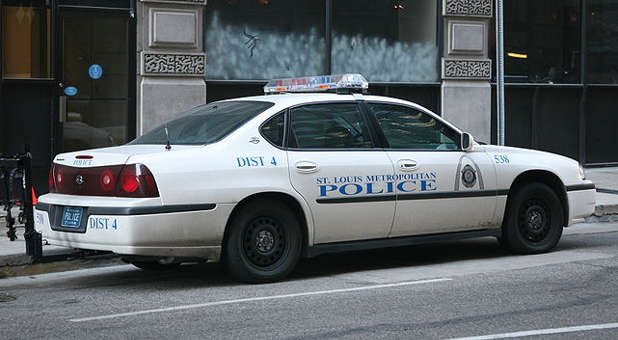Ferguson Grand Jury Makes Decision in Fatal Shooting of Black Teen
A Missouri grand jury has made a decision on whether to indict a white police officer in the August fatal shooting of an unarmed black teenager in Ferguson, a killing that sparked angry protests in the St. Louis suburb, prosecutors said on Monday.
The shooting death of 18-year-old Michael Brown, a resident of a predominantly black city with a white-dominated power structure, has become a flashpoint for strained U.S. race relations. Activists in Ferguson and around the United States have been preparing for the grand jury’s decision for weeks.
The decision will be disclosed later on Monday, Ed Magee, a spokesman for St. Louis County Prosecutor Bob McCulloch, said in an e-mailed statement.
Missouri Governor Jay Nixon has called up the National Guard and local officials have been planning a massive police presence to quell any potential violence, particularly if officer Darren Wilson is not indicted in the Aug. 9 shooting.
Nixon plans to make a public plea for peace at 5:30 p.m. local time (2330 GMT) in remarks at the University of St. Louis, a spokesman said.
The victim’s father, Michael Brown Sr., told a group of protesters outside the Ferguson Police Department that he had been told the grand jury had reached its decision but said he did not know what it was.
“He’s calling for peace and he wants people to be not violent, not looting stores, not throwing things at police officers,” said Byron Conley, 51, who briefly spoke with Brown. “I hope we can do this in a peaceful way. I just don’t want no one to look at our little town thinking we’re a bunch of wild animals. We’re really good people here.”
White House spokesman Josh Earnest told reporters at the White House that President Barack Obama has “delivered a pretty forceful message” that any protests following the grand jury’s decision should be peaceful. Brown’s parents, ministers and community leaders also have urged sympathizers to remain peaceful, whatever the outcome.
Ferguson has been on edge for weeks as residents await the grand jury’s decision. Shop owners in the city, which faced weeks of sometimes violent protests following Brown’s death, have boarded up their windows. Students in one area school district began an extended early Thanksgiving break on Monday.
Protesters have said they plan to demonstrate at the Ferguson Police Department and at the county courthouse in Clayton, about 8 miles (13 km) to the south, following the grand jury’s decision. Many have said they will take to the streets regardless of whether Wilson is indicted, saying the case illustrates long-simmering tensions between black Americans and police.
Police in Clayton placed large barricades around the courthouse and put locks on mailboxes to prevent them being opened ahead of the announcement. The school district in nearby Hazelwood canceled all after-school activities on Monday following the news.
Lawyers for Brown’s family say the teen was trying to surrender when he was shot, while Wilson’s supporters say he feared for his life and opened fire in self-defense. Brown was shot at least six times.
Brown is suspected of having stolen cigars from a nearby convenience store shortly before the incident. Brown and a friend had been walking down the middle of the street when Wilson approached them.
The August shooting touched off a national debate about race relations and ignited nightly street demonstrations where police in riot gear, flanked by armored vehicles, fired rubber bullets and deployed tear gas to break up crowds.
Local and state authorities scrambled to keep a lid on the protests in the face of criticism their heavy-handed tactics were only making the situation worse.
McCulloch declined to file charges directly and instead had a grand jury hear evidence over recent months. In a move aimed at transparency, the prosecutor’s office has pledged to release publicly the evidence heard by the grand jury, where proceedings are usually kept secret.
Legal experts say the grand jury can consider charges ranging from first-degree murder to criminal negligence.
© 2014 Thomson Reuters. All rights reserved.














































